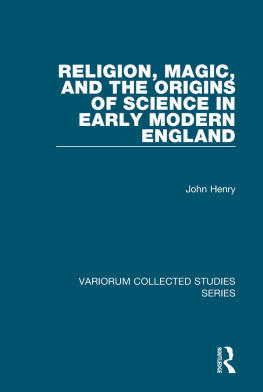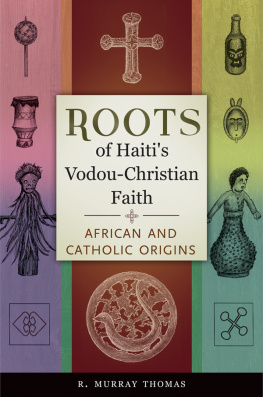ISBN for this digital edition: 978-0-8263-4734-3
2009 by the University of New Mexico Press
All rights reserved. Published 2009
Printed in the United States of America
13 12 11 10 09 1 2 3 4 5
The Library of Congress has cataloged the printed edition as follows:
Hale, Lindsay.
Hearing the mermaids song :
the Umbanda religion in Rio de Janeiro / Lindsay Hale.
p. cm.
Includes bibliographical references and index.
ISBN 978-0-8263-4733-6 (pbk. : alk. paper)
1. Umbanda (Cult)BrazilRio de Janeiro.
2. Spirit possessionBrazilRio de Janeiro.
3. Rio de Janeiro (Brazil)Religious life and customs.
4. Rio de Janeiro (Brazil)Social life and customs.
I. Title.
BL2592.U5H35 2009
299.672098153dc22
2009012684
Acknowledgments
In the Umbanda religion that is the subject of this book, it is often said that without the trickster spirit Exu, one can do nothing. While any debt I may owe to Exu must remain a private matter, I will say that without my family, friends, professors, and colleagues, and without the generosity of my Umbanda friends, I could not have written this book.
To my familymy parents, Jewell and Norman, my brothers Doug and GregI am indebted for a lifetime of love, support, and wisdom. My mother passed away several months after I began writing this book; knowing she would never have the joy of reading it, I wrote it all the more with her in mind. An extra thanks to Doug and his wife Joanna, who read an earlier version of the manuscript and gave excellent editorial and critical advice. As family to be thanked I also count my former wife, Lisa, to whom I am forever, and affectionately, indebted.
In Brazil, Professor Gilberto Velho of the Graduate Studies Program at the Federal University of Rio de Janeiro was unfailingly generous and helpful. He gave me excellent advice and full access to the resources of the program, including the excellent dissertations from which I learned so much. Equally generous was my colleague Clarice Mota de Novaes, who gave freely her hospitality, advice, and introductions to individuals who would play key roles in my research.
Though it has been many years since they taught me, I benefit every day from the teaching of several superb professors. Dennis McGilvray introduced me to interpretive, psychological, and semiotic approaches to anthropology during my undergraduate studies at the University of Colorado. I was equally fortunate at the University of Texas at Austin. In the anthropology department, Greg Urban, who supervised my dissertation, gave extraordinary guidance and encouragement, in addition to providing a deep grounding in semiotics and linguistic theory. James Brow, Richard Adams, Henry Selby, and Steven Feld each contributed in unique ways to both my theoretical development and to how I conceive of my roles as anthropologist, teacher, and mentor. From the history department, Richard Graham helped me to see the broad patterns that have shaped Brazil, while Sandra Lauderdale Graham encouraged me to look through the big lens of social theory to see the fine details of lived experience.
I thank the many friends who have been so supportive during the writing of this book. It is best not to list them all, but two in particular I must single out: Constance Iglesias and Lisa Phillips, for their love and support over many years. I also want to thank my friend and former student, Margaret Schugart, and my friend Luciana Castro, for their encouragement during the writing. And I thank my students, who have asked important questions that might never have occurred to me, while brightening my days with their good humor, curiosity, and energy.
I am grateful for the generous award of a Fulbright-Hays Doctoral Dissertation Research Fellowship that supported my longest period of research in 199091.
I thank the countless people in Rio de Janeiro who were not the subjects of my research, people that I encountered every day, on the buses, the sidewalks, on the beaches, in the cafes, in government offices, in stores, who, almost without exception, treated me with wonderful kindness and warmth.
Finally, I thank the many Umbanda friends who shared their rituals, beliefs, and stories. To protect their privacy, I do not name any of them in these acknowledgments, and in the text their names have been changed. Without them, of course, this book could not exist. More importantly, they have given me something beyond words, beyond measure. I cannot repay that, but I hope in some small way this book can honor their gift.
Introduction
This book is about the spiritual beliefs and practices of various people that I came to know in Rio de Janeiro beginning in 1986. These people, who come from all walks of life, all colors and classes, practice a religion that most North Americans would find strange, even bizarre. It is a religion in which the spirits of old slaves and Brazilian Indians speak through the mouths of mediums in trance. It is a religion that worships African gods but often calls them by the names of Catholic Saints, and it is a religion that embraces the concepts of karma and reincarnation, Christian charity, and a belief in the efficacy of both modern science and ancient magic. Through numerous journeys to Rio spanning nearly a decadethe longest visit, in 199091, lasting over a year, with others of two and three months at a timeI had the opportunity to spend countless hours attending rituals and festivals, talking to participants and non-participants alike, asking questions, and immersing myself in a world that to this day enchants, disturbs, delights, and fascinates me.
The religion is known as Umbanda. That simple statement is barely on the page, and I already need to qualify it. Most of the people I know who practice Umbanda, when asked their religion, will answer: Sou catlica (I am Catholic). Indeed, many of the people who come to Umbanda do not do so to worship and do not exhibit religious attitudes such as awe, reverence, and wonder. They come, instead, hoping that those spirits of old slaves and Brazilian Indians will use their powers to fix the problems in their lives. But for many other people, Umbanda is the path to a rich and deep spiritual life, a fellowship of faith and service, and a guiding star in a sometimes dark and difficult world. And, as we will see, Umbanda takes many forms; referring to it in the singular masks differences as striking as day and night.
Umbanda is a relatively new religion, dating to the first decade or so of the twentieth century. Its beginnings are to be found in Rio de Janeiro and that citys surrounding urban areas. There, many Afro-Brazilianssome the descendents of slaves, others ex-slaves finally freed by the abolition act of 1888practiced versions of the religions brought by them and their ancestors from Africa. These Afro-Brazilian religions, which if anything are now stronger and more vital and popular than ever before, faced police oppression and were stigmatized as superstitious, immoral, and, most damning of all in such a racist environment, as legacies of barbaric Africa. At this same time, a French import called espiritismo (spiritism) enjoyed wide popularity among the well to do (and white) elite. When innovators combined elements of Afro-Brazilian religions and espiritismo, Umbanda was born.







